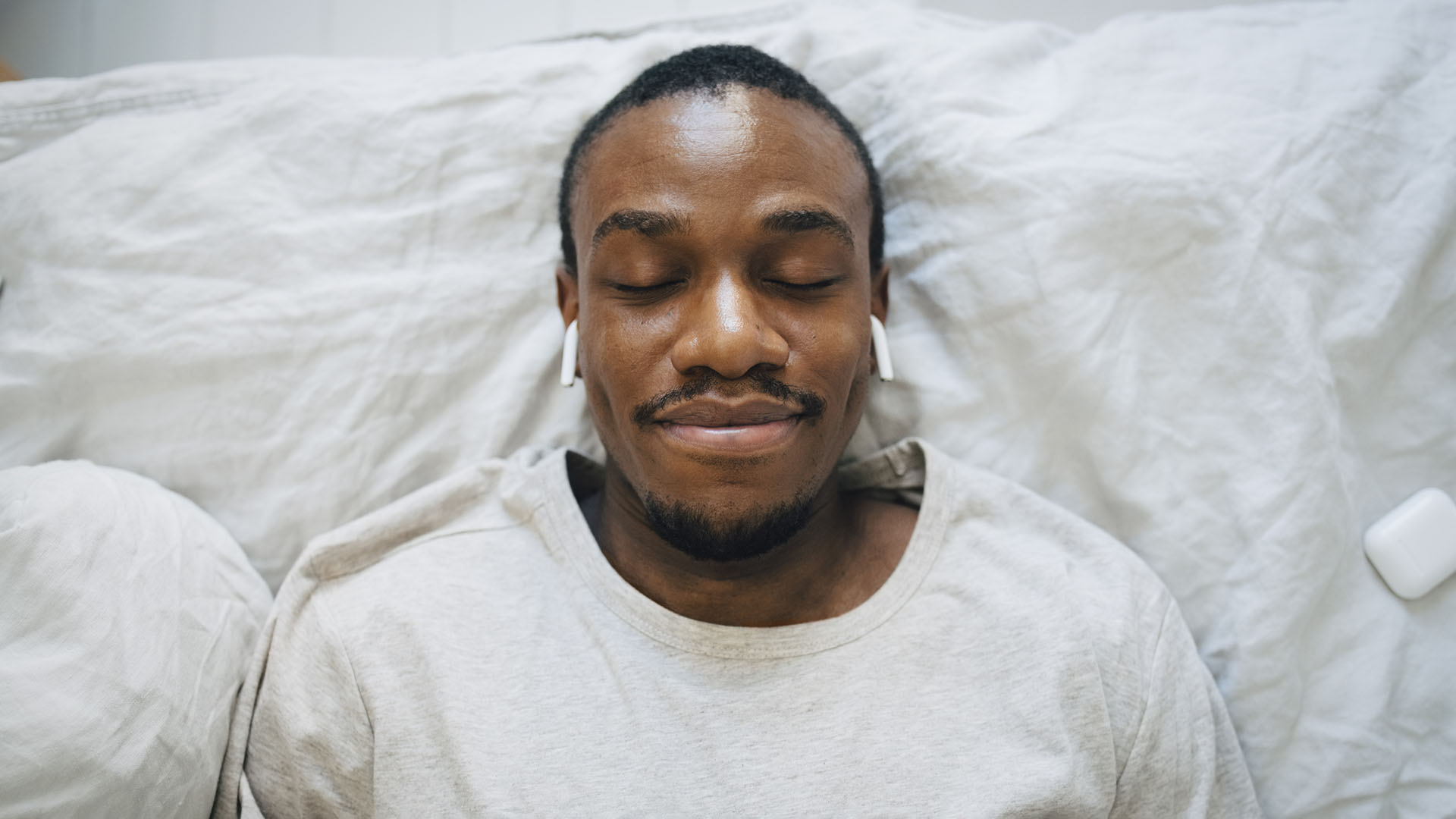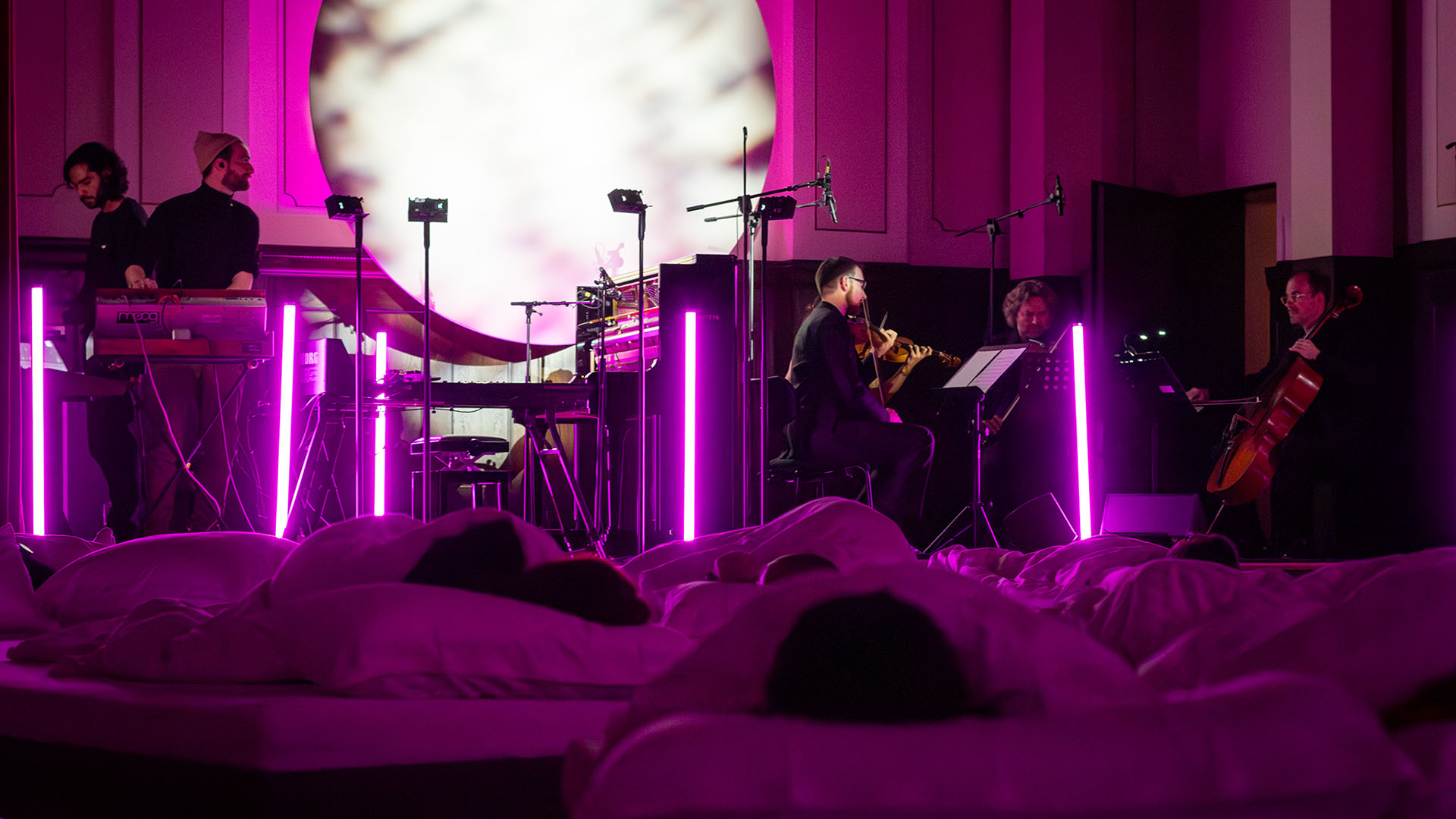How to use music to help you sleep: 3 golden rules
Music can be a powerful part of your bedtime routine

Sign up for breaking news, reviews, opinion, top tech deals, and more.
You are now subscribed
Your newsletter sign-up was successful
In recent years there has been an increasing amount of interest in how music can be used to help aid sleep. We're not talking about white noise here – we're talking about actual songs with melodies and, sometimes, lyrics. There have been a number of studies digging into the particular musical characteristics that help you physically relax and unwind.
Emma – one of our best mattress brands – was so intrigued by the idea that it worked with a composer to create its own album of original compositions, scientifically designed to be the perfect sleep playlist. Scores of Sleep, Vol 1 is now available to stream for free on Spotify, and includes 11 original tracks that form one ultra-soothing bedtime album.
At the launch event (where pretty much everyone nodded off), we spoke to Angela Kondinska, a neuroscientist and sleep specialist who now works on the Emma product development team, to find out more about the potential of music to help us wind down. Here are her tips for how to integrate music effectively into your sleep routine.

1. Look for these specific characteristics
There have been a few studies exploring the relationship between music and sleep, but the one that inspired Emma's album came from the Royal Academy of Music, Aarhus. The 2023 study analyzed over 220,000 tracks from Spotify sleep playlists, looking for common characteristics.
It found that, compared to playlists in general, sleep music tended to be:
- Quieter
- Less energetic and less lively
- More likely to be acoustic
- More likely to be instrumental (without lyrics)
- Less 'danceable'
- Slower
I imagine none of those will come as a particular surprise, but they're still worth bearing in mind when selecting an album or playlist to put on in the evening. Anything that makes you want to get up and dance, or sing along, is likely having the opposite effect to the one you're looking for.
2. Pick whatever genre appeals
At part of the Aarhus study, researchers conducted some analysis into if certain genres were better suited to sleep music than others. In that study, based on Spotify's genre tags, the most popular genre was 'sleep' (not terribly helpful, with ~47k occurrences), followed by pop (~30k) ambient (~13.5k) lo-fi (~13.5) and rap (~7k occurrences; a bit of a curve ball).
Sign up for breaking news, reviews, opinion, top tech deals, and more.
However, other studies had different results. A 2018 study from the UK found classical music the most popular for sleep (32%), then rock (11%) and pop (8%). An Australian survey from 2020 that asked participants what kind of music helped them sleep, and found that classical was most widely effective (18.5%), then pop (12.3%) and ambient (12.3%).
The Aarhus study concluded that, "The studies agree that no single type of music is most listened to by the general population to fall asleep, accentuating the need for music-based sleep interventions to include many different choices of genres."
That's good news, because another part of Angela's advice is to focus on your own preferences when choosing what music to integrate into your bedtime routine. Trying to force yourself to do anything – whether that's listening to a certain type of music or taking up evening yoga, or whatever – isn't going to be relaxing if you don't naturally find it relaxing. Even if it's 'supposed' to be good to sleep.
"The more we say, 'Okay, you have to do this, [the more] stress builds up, and then we end up sleeping less because of the stress," she elaborates. "The big thing is likability, so people should enjoy the songs they listen to." Aside from the original Emma sleep album, the brand has a range of playlists in different genres for people to explore. So if you're more of a hip hop person than a classical person, there's a playlist for you...
3. Make it repetitive
Once you've found your playlist, give it a chance to work. "What usually brings a lot of relaxation is repetitiveness. Our brains love being able to predict something," says Angela. Listening consistently each night, at the same point in your evening routine, will help amplify the relaxing properties of your sleep music.
If, once you've given it a fair chance, it's clear that music isn't going to be the thing that helps you drop off, try something else. "Allow yourself to explore in a curious way. There's a long list of sleep tips. Try out different things… and see what works," suggests Angela. "If [one thing] doesn't work, that's okay, because there's something else that will work."

Ruth is TechRadar's Homes Editor specializing in air (vacuum cleaners, fans, air purifiers), and hair (hair dryers, straighteners and stylers). She has been in consumer journalism since 2020, reviewing and writing about everything from outdoor kit to mattresses and wellness gadgets, with stints on Tom's Guide and T3.